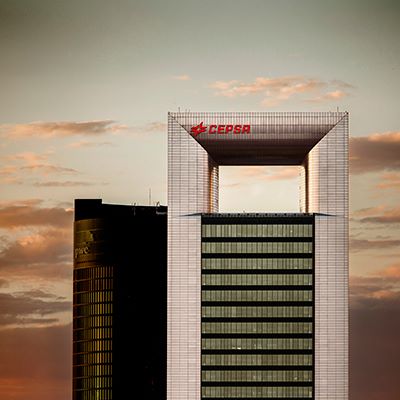thyssenkrupp nucera has received an award to provide a basic engineering design package, utilizing scalum modules, for a new green hydrogen plant

thyssenkrupp nucera is the preferred supplier of a 300-megawatt (MW) electrolyzer for Cepsa’s green hydrogen plant in Spain. Under an agreement announced at the World Hydrogen Summit in Rotterdam, the Spanish energy company Cepsa has awarded the electrolyzer specialist a contract to provide a basic engineering design package. thyssenkrupp nucera, one of the world’s leading suppliers of high-efficiency alkaline water electrolysis technology, will assist in the design and engineer of the facility through to the Final Investment Decision (FID). The project will use 15 of thyssenkrupp nucera’s standardized scalum® electrolyzer units with a capacity of 20 MW each.
The first phase of the Andalusian Green Hydrogen Valley entails a green hydrogen production plant at Cepsa’s La Rábida Energy Park in Palos de la Frontera (Huelva) as part of their partnership with Fertiberia. With a production up to 47,000 tons green hydrogen per year, it will form part of Cepsa’s wider plans to develop 2 gigawatts of green hydrogen capacity in southern Spain by 2030.
“We are very pleased to be working with an innovative partner to create one of the largest hydrogen valleys in Europe and to contribute to Cepsa’s path to a gigawatt capacity,” says Dr. Werner Ponikwar, CEO of thyssenkrupp nucera.
Cepsa is developing the Andalusian Green Hydrogen Valley as part of an ecosystem of European alliances, Europe’s largest green hydrogen hub to be developed.
“This is a decisive step in our Positive Motion strategy as we move to become a leading producer of green hydrogen developing vitally needed clean energy solutions for industry and heavy transport in Spain and across Europe. Our agreement with thyssenkrupp nucera brings together leading European businesses to create a European green hydrogen supply chain and accelerate decarbonization across the continent,” says Carlos Barrasa, Cepsa’s Executive Vice President of Commercial and Clean Energies.
The green electricity required for the production process is to come from solar and wind energy, which is plentiful in southern Spain, making it one of the most competitive places in Europe for green hydrogen production. The region also has access to strategic ports, forming the basis for the maritime corridor that Cepsa has set up with partners to transport hydrogen between southern and northern Europe, ensuring decarbonization solutions across the continent.
“thyssenkrupp nucera’s alkaline water electrolysis developed with our engineer’s industrial DNA is again the key to transform renewable energy into green hydrogen to decarbonize hard to abate industries. This project with Cepsa once again demonstrates the strong confidence of leading industrial players in our technology,” says Dr. Christoph Noeres, Head of Green Hydrogen of thyssenkrupp nucera.
Subscribe to our newsletter & stay updated.